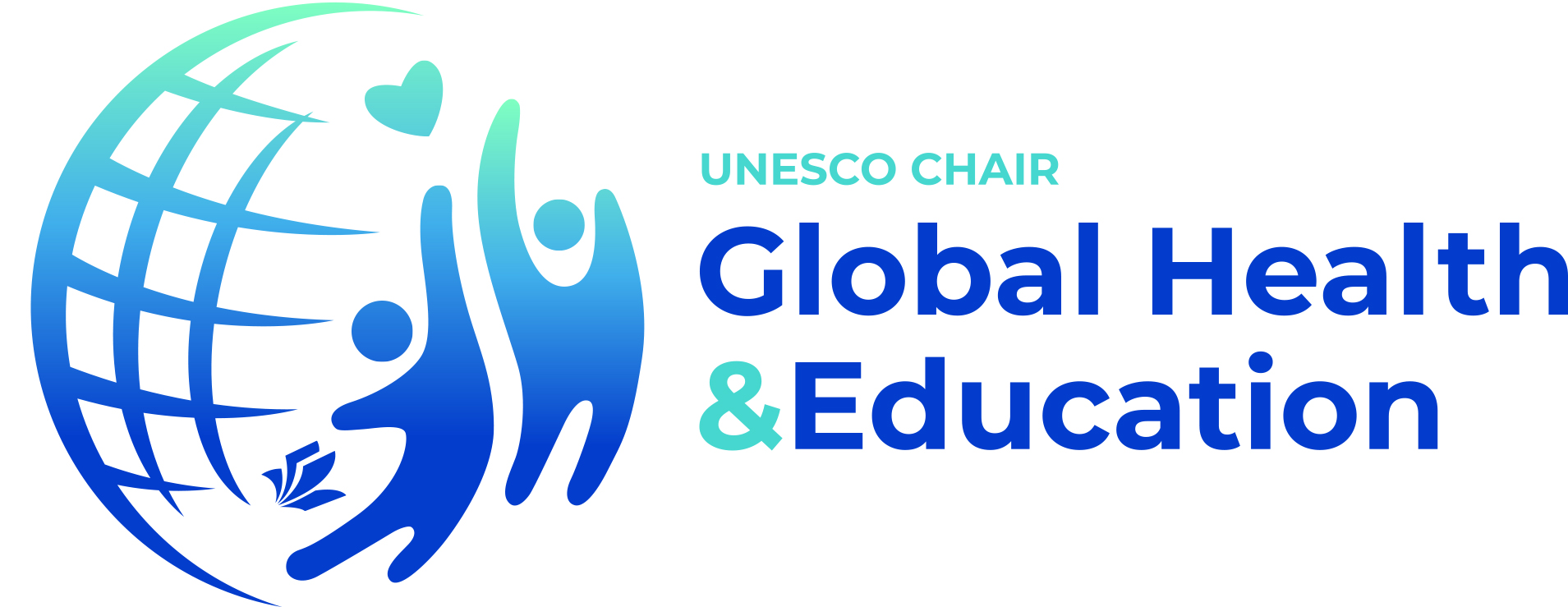UNESCO IITE and UNESCO Chair Global Health & Education webinar series
Speakers

Ms. Frida Warg is the Managing Director of the World Anti-Bullying Forum and Head of Research and Development at the Swedish NGO Friends. She is a licensed teacher and has 15 years of experience from work with children’s rights and bullying prevention. Friends develops, implements and disseminates knowledge about bullying and discrimination with the aim of not letting one single child be subjected to bullying. The World Anti-Bullying Forum is an international forum and biannual conference that brings together experts from various disciplines to increase the understanding of bullying and other forms of violence against children. The forum hosts discussions, panels, and meetings that aim to improve our understanding of bullying in all settings where children spend time, as well as efforts to stop and prevent it. The aims of the World Anti-Bullying Forum are:
- To address and prevent bullying and other forms of violence among children in accordance with the Convention on the Rights of the Child and Agenda 2030.
- To facilitate the sharing of knowledge and best practices among researchers, policymakers, and practitioners on preventing bullying among children.
- To gather, coordinate, and make research-based knowledge on preventing bullying among children easily accessible globally and digitally.

Ms. Nicola Gray, Co-chair holder UNESCO Chair on Global Health & Education, Reader, University of Huddersfield, UK

Mr Manos Antoninis is the Director of the UNESCO Global Education Monitoring (GEM) Report since 2017. Prior to joining the team he worked for 10 years on public finance, monitoring and evaluation projects in education in Bangladesh, China, Nigeria, Pakistan, Indonesia and with the Education For All Fast Track Initiative. He holds a DPhil in Economics for a study of technical education and the labour market in Egypt, completed at the Centre for the Study of African Economies of the University of Oxford. (For more details see here)

Mr. Yongfeng Liu, Project Officer, UNESCO Health and Education Section

Mr. Tigran Yepoyan is UNESCO regional HIV and health education advisor for Eastern Europe and Central Asia. He oversees the development and promotion of ICT-powered tools for health and well-being education for young people and supports teacher capacity building for violence prevention and health education. Has 25+ years of working experience in the field of HIV, education, health, social support, youth and community development in Eastern Europe and Central Asia. Is based in Moscow at UNESCO Institute for Information Technologies in Education where head the Unit of ICT in Health Education.
Moderator

Mr. Goof Buijs, Manager UNESCO Chair Global Health and Education
Summary
Violence and bullying in schools deprive millions of children and adolescents of their fundamental right to education. A recent UNESCO report revealed that more than 30% of the world’s students have been victims of bullying, with devastating, immediate, mid- and long-term consequences on academic achievement, school dropout, and physical and mental health. Exposure to the risks of violence and bullying has increased for many learners where education systems are not fully prepared for the increased use of digital technology in teaching and learning, as highlighted by the 2023 Global Education Monitoring Report. Violence and bullying is often perpetrated as a result of gender norms and stereotypes. Though some may think it is inevitable, in fact, it is preventable and its harm can be reduced. There are effective approaches to prevent, reduce and respond to violence and bullying and educators, learners, parents and other actors have important role to play in it.
Speakers from the World Anti-Bullying Forum, UNESCO Chair for Global Health and Education, Global Education Monitoring Report Team, UNESCO Health and Education Section and UNESCO Institute for Information Technologies in Education will address the following questions during the webinar:
- Are violence and bullying just part of growing up? How they affect children and adolescents, their mental health and why gender matters?
- Is it possible to end violence and bullying in school? If yes, what makes prevention and response to bullying effective?
- How education systems can protect learners from the adverse consequences of technology use, specifically online violence including cyberbullying and mental health issues?
- What can decision/policy makers, educators and learners do to prevent and decrease bullying, in particular, in the context of increasing use of digital technology in education?
- What practical tools are there for educators and other stakeholders to effectively address violence and bullying in school?
Our speakers’ contributions
In this webinar the following questions were addressed:
1. Can we agree that violence and bullying are just part of growing up? If not, why?
2. How do violence and bullying affect children and adolescents and why does gender matter?
Download the presentation from Nicola Gray
Download the presentation from Frida Warg.
3. On November 2nd we marked the UNESCO International Day against Violence and Bullying at School including Cyberbullying. The theme of this year has been mental health. Why? How do violence and bullying affect learners’ mental health?
Download the presentation from Yongfeng Liu.
4. Is it possible to end violence and bullying in school? If yes, what makes prevention and response to bullying effective?
Download the presentation from Yongfeng Liu.
5. How can education systems protect learners from the adverse consequences of technology use, specifically online violence including cyberbullying and mental health issues? How can school violence be measured?
6. What decision makers, educators, learners can do to prevent/reduce violence and bullying? Can you provide an example of a successful anti-bullying programme?
Download the presentation from Frida Warg.
7. Can you provide examples of interventions to stop/reduce violence and bullying in schools in Eastern Europe and Central Asia?
Download the presentation from Tigran Yepoyan.
Resources
UNESCO. 2023. What you need to know about school violence and bullying
UNESCO. 2023. Global Education Monitoring Report. Technology in education: a tool on whose terms?
UNESCO. 2022. The key role of teachers in ending school violence and bullying. Technical brief
UNESCO. 2021. Tackling cyberbullying and other forms of online violence involving children and young people. Fact sheet.
UNESCO and UN Women. 2016. Global guidance on Addressing School-related Gender-Based Violence.
UNESCO. 2023. International day against violence and bullying at school including cyberbullying 2023
UNESCO. 2023. Q&A: Ending school violence for better mental health and learning
UNESCO. 2023. Chuppi Todo (Breaking the Silence) video
UNESCO. 2021. Together against school bullying video
UNESCO. 2021. Stop bullying : People speak out! video
UNESCO. 2022. Connect with Respect: Preventing gender-based violence in schools: Classroom Programme for Students in Early Secondary School (age 11-14) A classroom programme
WHO, 2016. INSPIRE: Seven strategies for Ending Violence Against Children.
WHO. 2022. What works to prevent violence against children online?
World Anti-Bullying Forum. A guide – How to stop bullying
Friends programme https://friends.se/en/
Lancet CAH, Supporting every school to become a foundation for healthy lives
Contextual safeguarding – Dr Carlene Firmin. https://www.contextualsafeguarding.org.uk/


